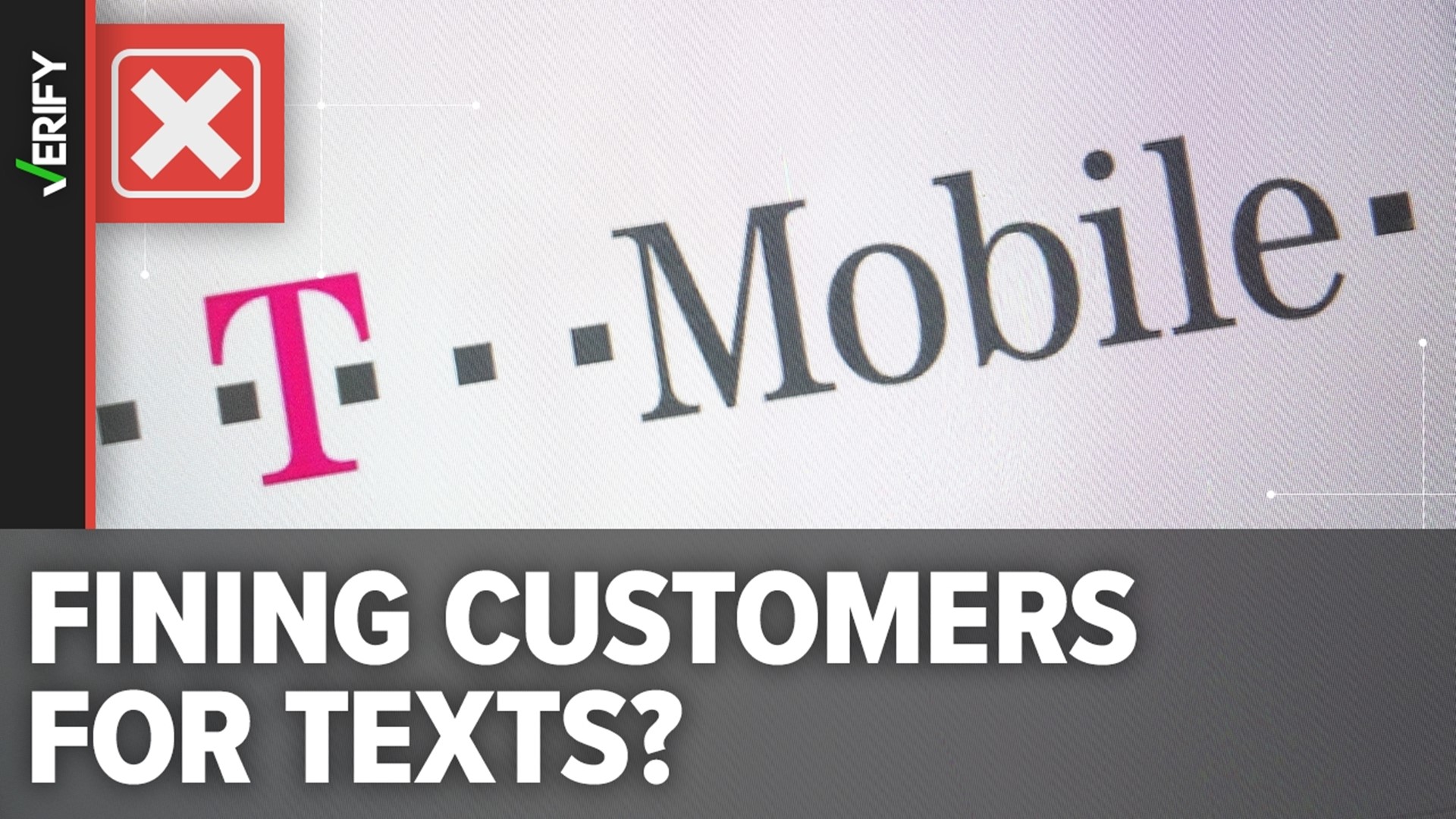Social media posts with millions of views claim T-Mobile “has quietly updated their [terms of service] to include fines for content they don’t agree with, starting January 1st, 2024.” The posts say T-Mobile will fine people for text messages that are used for malicious activities, like social engineering or phishing, or include content considered illicit or inappropriate like sex, hate, alcohol, firearms and tobacco.
“So they’re basically saying if you send text messages that have any of this, sexual talk, hate speech, talking about alcohol, firearms, tobacco, T-Mobile will fine you $500 per violation,” one post claims.
Multiple VERIFY readers, including Missy, asked if this is true.
THE QUESTION
Is T-Mobile fining regular customers over their text message content?
THE SOURCES
THE ANSWER
No, T-Mobile is not fining regular customers over their text message content. The company updated their policy to be able to fine third-party vendors who use their network for phishing, social engineering, or other illegal activity.
WHAT WE FOUND
As of Jan. 1, 2024, T-Mobile updated its policy so it can fine third-party commercial vendors who send text messages over the T-Mobile network that include illegal or illicit content. The policy update has no impact on regular customers, and T-Mobile currently does not have any policy in place to fine customers for their text message content.
“The change only impacts third-party messaging vendors that send commercial mass messaging campaigns for other businesses. We do not and cannot censor personal texts. We only have filters that protect our customers from unwanted texts that could contain malware and other fraudulent or malicious activities such as phishing,” T-Mobile said in a statement to VERIFY.
Third-party vendors, like Bandwidth and Vonage, contract with T-Mobile on behalf of their clients to send mass message campaigns on the cellular network. Text messages sent out by these vendors can include billing, political or marketing messages. For example, a shop may work with a third-party vendor to send out a mass marketing text message about a new promotion. It’s the third-party vendor’s job to make sure the shop’s message adheres to T-Mobile’s code of conduct, which provides information on prohibited activity.
“The vendors will be fined if the content they are sending does not meet the standards in our code of conduct, which is in place to protect consumers from illegal or illicit content and aligns to federal and state laws,” T-Mobile says.
The fine amounts effective as of Jan. 1 are for every violation issued. They include: $2000 for phishing, smishing or social engineering, $1000 for illegal content and $500 for other content considered illicit or inappropriate like sex, hate, alcohol, firearms and tobacco, according to Vonage.
T-Mobile’s terms for customers include a list of prohibited behaviors, which include “spamming or sending abusive, unsolicited, or other mass automated communications.”
But just because T-Mobile isn’t issuing fines to regular customers, that doesn’t mean there aren’t consequences for participating in illegal behavior over text. For example, threatening to injure someone via text is considered a federal interstate commerce offense, and those text messages can be used in court, according to The Wiseman Law Firm.
T-Mobile does not monitor for these illegal behaviors, but they work with law enforcement who can enforce the law. T-Mobile’s privacy policy says they do collect data on text message information and will “cooperate with law enforcement and protect the rights, interests, safety, or property of T-Mobile and others.”

